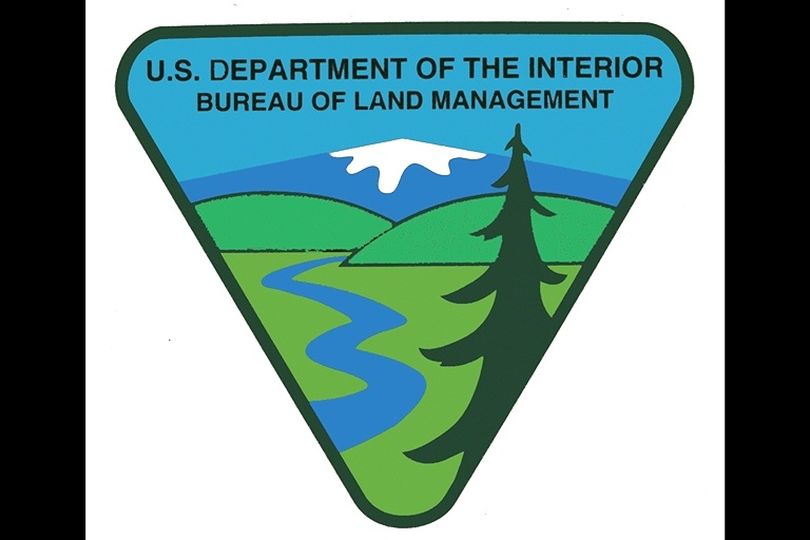BLM settles suit on wolf hunting contest permits

HUNTING -- Years of legal skirmishes stemming from an 2014 Idaho predator hunting derby reached a partial decision yesterday. Very few predators were killed in the derby and no wolves, but the lawsuit seeks to sensationalize the event and chip away at the ability to conduct such contests on public land.
Here's today's report from the Associated Press.
BOISE, Idaho (AP) – A federal judge has dismissed part of a lawsuit by environmental groups involving a wolf- and coyote-shooting contest in Idaho as part of a settlement agreement that requires federal officials to notify the groups if another contest is planned.
The agreement on Wednesday follows several years of court skirmishes between the groups and the U.S. Bureau of Land Management involving Idaho for Wildlife’s Predator Hunting Contest.
“This cruel, unethical and ecologically damaging contest should not occur on any lands, but particularly not on public lands belonging to all of us,” said Andrea Santarsiere, senior attorney with the Center for Biological Diversity.
Idaho for Wildlife initially received a permit for the contest from BLM in mid-November 2014, but the federal agency rescinded that decision less than two weeks later following a lawsuit by the environmental groups contending the approval violated environmental laws.
In the settlement on Wednesday, the BLM agrees that it rescinded the permit as well as various decisions in an environmental process leading up to the permit. The agreement also requires the BLM to notify the groups during the next three years if the agency receives a permit application at its Idaho Falls district office for another predator hunting contest. The BLM must also pay $20,000 in court costs.
Sarah Wheeler, a BLM spokeswoman, didn’t return a call from The Associated Press on Thursday.
Idaho for Wildlife held the Predator Hunting Contest on private land and U.S. Forest Service land, but not BLM land, in December 2013 and January 2015 on land outside Salmon, Idaho. The environmental groups say the remote and rugged area in east-central Idaho is considered key for a sustainable wolf population in the state.
Participants in the two predator contests reported killing some coyotes but no wolves. The group, citing lack of wolf-hunting success, didn’t hold the contest the last two winters. But Steve Alder, the group’s executive director, said on Thursday the group would look at possibly holding one in January 2018 following Wednesday’s court action.
“I think we’ll have to consider having some more contests down the road,” he said, noting the group has no definite plans. “We don’t know that we’ll call it a wolf hunt or not because of the crazy wolf nuts. It brings them out in hordes.”
He also noted the “dismal results” the contest has produced for wolf hunters and said future contests, if held, might instead focus on coyotes and jackrabbits.
On a related front, a decision on a separate part of the lawsuit environmental groups have against the U.S. Forest Service involving Idaho for Wildlife’s predator contest is pending.
The predator hunts in late 2013 and early 2015 were allowed on public Forest Service land after a federal judge said organizers didn’t need to get a special permit from that agency.
Environmental groups are challenging that ruling. Arguments were made in federal court on Jan. 11, but the court hasn’t yet announced a decision.
Besides the Center for Biological Diversity, other environmental groups participating in lawsuit are Cascadia Wildlands, Kootenai Environmental Alliance, Project Coyote, Western Watersheds Project and WildEarth Guardians.
Here's the media release from the U.S. Attorney Office:
BOISE – The Bureau of Land Management (“BLM”) has reached a settlement with several environmental groups to ensure that groups with an interest in public lands can meaningfully participate in the land management process whenever BLM might in the near future again be asked to consider applications for predator hunting contest permits utilizing portions of public lands in east-central Idaho, announced U.S. Attorney Wendy J. Olson. The settlement has been approved by Chief U.S. Magistrate Judge Ronald E. Bush.
The settlement ends litigation against BLM by plaintiffs WildEarth Guardians, Cascadia Wildlands, Kootenai Environmental Alliance, Center for Biological Diversity, Western Watersheds Project, and Project Coyote. The groups alleged that BLM failed to comply with the National Environmental Policy Act when it authorized the issuance of a special recreation permit to a non-profit group, Idaho for Wildlife, for a predator hunting contest in the Salmon, Idaho, area on November 13, 2014. BLM withdrew its authorization on November 25, 2014, and no permit was issued. In subsequent winters, 2015-16 and 2016-17, neither Idaho for Wildlife nor any other non-profit sought a permit for a hunting contest from BLM in the same area.
Olson stated that the settlement best served the agencies and the public interest. “Rather than continuing to press its legal defenses in court, BLM agreed to notify environmental group attorneys of any applications for contests involving the hunting of wolves or coyotes received by BLM’s Idaho Falls District Office over the next three years,” said Olson. “This opening of communication underscores BLM’s commitment to assuring that public input into future decisions would not be rushed or minimized.”
“We are pleased to have reached this settlement agreement with these plaintiff groups,” said Idaho Fall District Manager Mary D’Aversa of BLM. “Thousands of visitors recreate in and around Salmon every year and we will continue to take our land management responsibilities very seriously on behalf of all Americans.”
“The agreement reaffirms BLM’s commitment to transparency and to public involvement in the management of our public land,” said District Manager D’Aversa.
The plaintiff environmental groups have brought different claims against the United States Forest Service. Those claims remain outstanding.
